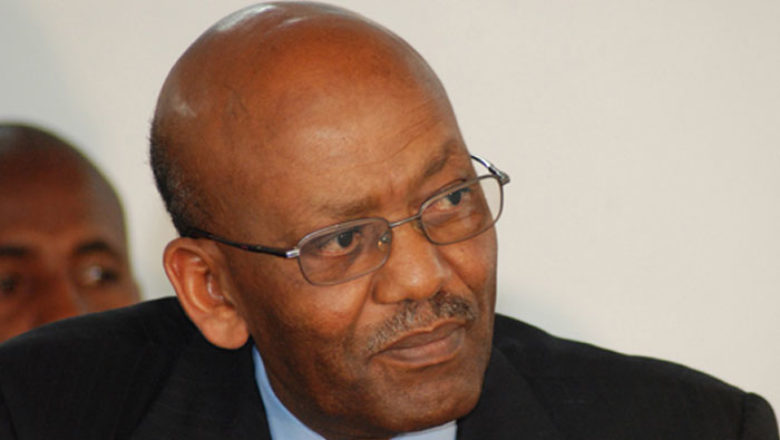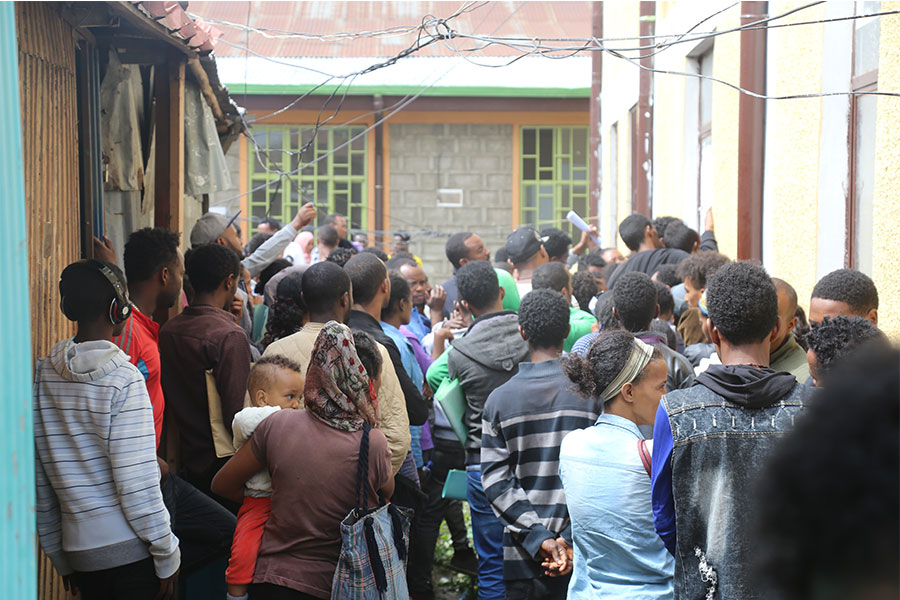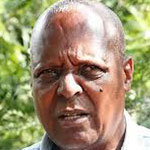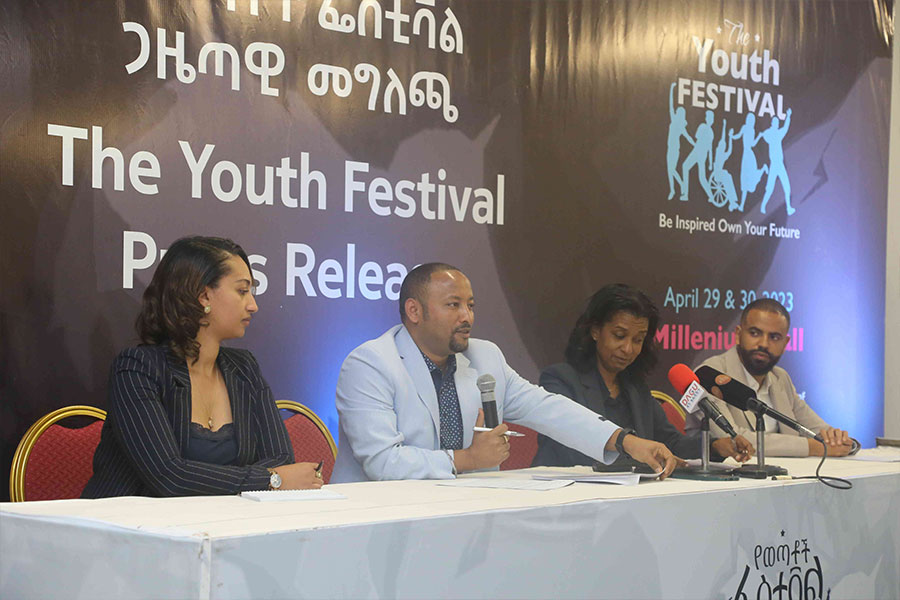
Obituary | May 11,2019
Nov 30 , 2019
By Dawit Wondimagegn
The youth, the ultimate victims of Ethiopian political history, are under attack. Once again they are absorbing the suffering of a nation, bleeding for the wounds of the poor, dying for the survival of a nation. All in all they are paying for a future they will not be a part of. Despite their unselfish and at times ill-advised sacrifices, they are also taking the blame. The youth from all stripes are the victims of time and politics. From the Red Terror until now, they have become the blame bearers of society’s failure to invest in them. Why?
We are living in a critical age - a transitional age where there is no overarching ideology and the possibility of a harmonious society is an illusion. This society has gone through such times on several occasions. There is no surprise here. It is inevitable that a new order will come, and we will eventually be back to the mundane strife of daily life. Until then, we have to somehow survive these precarious transitions.
Going through critical periods is supposed to be part of the natural course of history, at least until we have reached a stage where we have accomplished the formation of a society where the various creeds of religion, politics, ethnicity and class cease to be central matters. Until then, we are doomed to go through several cycles before we fully recover from our addiction to violence. But recover we will. The challenge is not that we are going through a critical period of transition. The challenge is that every time we go through one, we tend to make it quite prolonged and unbearable.
While several reasons could be cited, the fundamental condition that prolonged the critical periods of the past and possibly continue to prolong the current is that we really do not know what we are transitioning into. All the suspect landings like democracy, justice, equality of all sorts and prosperity flatter to deceive us eventually, because all these possibilities are journeys not destinations. We will not reach them. Our role is to facilitate their possibility.
I believe contemporary society at any period is a traveler on the journey where no one reaches the end. Ends like democracy, justice, equality and prosperity are the charms that pull us toward the trip. In this excursion of history, the youth are the driving force. They are the new passengers in the timeless voyage of history. They provide the vigor, the steam, the verve and the arousal that propel society into the future. The Ethiopian youth have been at it for decades with little to show for their sacrifice.
No change was ever possible without the rousing impact of youth. The youth will push an agenda with their dynamism. The hope in their eyes instills hope in others. The fire in their bellies spur millions. Their unflinching commitment to a cause creates the mirage of destroying impossibility. They have the magic that make progress possible. Youth are the miracle that nature endowed us with, so that our ilk continues to occupy the land. All this, unfortunately, makes them prey to political predators, who will not hesitate for a second to push them to their own demise.
What makes youth so vulnerable to political predation?
I have been marveling and wondering about the constant pillorying of the youth concerning their actions of late. They are getting denounced and derided by right and left for things they have done and atrocities they have committed. There is no denying that their actions have been despicable, and no one in their right mind will defend such horrendous acts of violence as nothing but heartless. However, if our vilification rests and ends on deploring the youth, then we have only managed to deny the obvious without confronting it.
The obvious thing is that the youth have been the moral victims of predatory politics as a result of their developmental vulnerability. The youth are predisposed developmentally, because they have no identity.
This cannot be said enough. The youth have no identity. They are at an age where their identity is forming. Depending on what they get and what they are given, they come out as a fully formed adults with secure identities or as an adult with the confusion and insecurity of an identity crisis. Therefore, identity can easily be assigned to them.
The obvious thing is that their age also makes them amenable to suggestions through traditional associationist psychology’ In simple terms, they are prone to believe what they are told as long as they are told that doing something leads to either pleasure or pain. Action is associated with some pleasure or pain. You can choose one action over another based on what it promises to deliver. In this case, they have engaged in a political process that promised them pleasure without having any control over how the politics delivers what it promises to deliver. They became tools to a political process with no representation of their desire.
The obvious thing is that, in this process where they have neither voice nor hearing, they got completely depersonalised. Depersonalisation is a psychological process where individuals develop a cynical attitude toward others. In this case, instead of recognizing youth as a vulnerable state and that they are individuals with wants, needs and desires, society chooses to objectify them. Instead of beings we chose to see them as objects. Instead of calling them by their names, our children, we gave them cynical group names. Why is one surprised if a depersonalised person acts like one?
This obliviousness to the obvious has created youth with disillusionment. Political predators created the illusion that life is not as real as it seems. They roused the youth with false promises of a better way of living. When it is time to deliver, they are told that they can have a better life as long as they are willing to take it from the "other." If they die in the process, it is all for a noble cause. When the illusion fragments, the youth are standing with despair, hopelessness and the profound sense of abandonment.
These emotions are destined to prolong the critical period of transition. When individuals are in this emotional state, it is hard to formulate an ideology that binds people together. When people feel abandoned and uncared for, they find it hard to trust again. With no trust there is no transition but lingering in misery.
This seems a sad scenario but there is light at the end of the tunnel if only adults prefer to see and follow it. It is important for us, adults, to come out of our customary indifference and choose between living life and just getting through it. The difference between the two lies in our willingness to know and acknowledge that people have feelings that need attending. Especially that, young people have feelings that need recognition and acknowledgment. We can choose to see how desperate and hopeless our youth have become. They are dying for an adult intervention. They are tired of predators preying on their lives, if we do not start to intervene and start to be counted, they have no choice but continue to focus on their daily survival. Whoever shows up with the money for the day, will earn their cooperation, reap the benefits of their vitality and prolong our transition.
How do we do it? How can we show that there are adults in the house?
Our house is filled with antagonism born out of a robust adherence to partiality. We all claim we have the truth. Our misguided pride has blinded us to the knowledge that truth is always somewhere in the middle. We are consumed with the idea of avoiding defeat at any cost. We have created a bitter spirit of communicating. Eventually our marriage to partiality will haunt us. It will not take us anywhere good. Partiality is the greatest enemy to society. It is our single most important danger we have to overcome if we are going to transition to a harmonious society. This requires us to adopt a toned down approach to our engagements. We need to curb our tendency to antagonize each other at every corner and curve.
We have to model for the youth that some of us are willing to meet the "other" where they are. We have to model for our youth that even when we stand opposed to each other, we also care for each other. Even when we cannot stand each other, we are still standing together. When young people notice that adults are in the house, they start to feel safe and their insecurities dissipate. Only then will they focus on fueling the journey toward the promised land of democracy, justice, equality and prosperity: all illusions, but good ones to be misled by. Happiness in life depends on which fictions you choose to believe in.
PUBLISHED ON
Nov 30,2019 [ VOL
20 , NO
1022]


Obituary | May 11,2019

Agenda | Jul 09,2019

Verbatim | Apr 06,2019

Commentaries | Apr 01,2023

Radar | Apr 08,2023

Commentaries | Nov 09,2019

Radar | Aug 18,2024

Sunday with Eden | Aug 01,2020

Radar | Mar 27,2021

Radar | Apr 29,2023

My Opinion | 131586 Views | Aug 14,2021

My Opinion | 127942 Views | Aug 21,2021

My Opinion | 125917 Views | Sep 10,2021

My Opinion | 123541 Views | Aug 07,2021

Dec 22 , 2024 . By TIZITA SHEWAFERAW
Charged with transforming colossal state-owned enterprises into modern and competitiv...

Aug 18 , 2024 . By AKSAH ITALO
Although predictable Yonas Zerihun's job in the ride-hailing service is not immune to...

Jul 28 , 2024 . By TIZITA SHEWAFERAW
Unhabitual, perhaps too many, Samuel Gebreyohannes, 38, used to occasionally enjoy a couple of beers at breakfast. However, he recently swit...

Jul 13 , 2024 . By AKSAH ITALO
Investors who rely on tractors, trucks, and field vehicles for commuting, transporting commodities, and f...

Jun 28 , 2025
Meseret Damtie, the assertive auditor general, has never been shy about naming names...

Jun 21 , 2025
A well-worn adage says, “Budget is not destiny, but it is direction.” Examining t...

Jun 14 , 2025
Yet again, the Horn of Africa is bracing for trouble. A region already frayed by wars...

Jun 7 , 2025
Few promises shine brighter in Addis Abeba than the pledge of a roof for every family...

Jun 29 , 2025
Addis Abeba's first rains have coincided with a sweeping rise in private school tuition, prompting the city's education...

Jun 29 , 2025 . By BEZAWIT HULUAGER
Central Bank Governor Mamo Mihretu claimed a bold reconfiguration of monetary policy...

Jun 29 , 2025 . By BEZAWIT HULUAGER
The federal government is betting on a sweeping overhaul of the driver licensing regi...

Jun 29 , 2025 . By NAHOM AYELE
Gadaa Bank has listed 1.2 million shares on the Ethiopian Securities Exchange (ESX),...